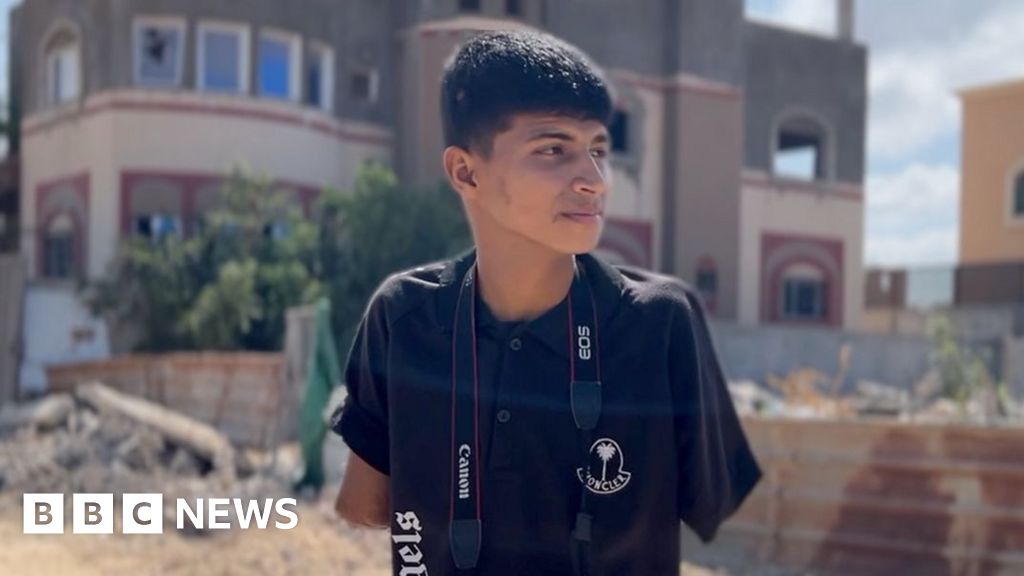US Secretary of State Antony Blinken has met with top Israeli opposition leaders as the United States continues to push for a truce deal in Gaza.
Blinken held talks with Benny Gantz and Yair Lapid in Israel on Tuesday before travelling to Jordan to attend an international Gaza aid conference.
In his meeting with Gantz, Blinken blamed Hamas for failure to reach a truce agreement.
“They discussed the proposal to achieve a ceasefire in Gaza as part of a hostage deal that would secure the release of all hostages and surge humanitarian assistance throughout Gaza,” the State Department said in a statement describing the meeting.
Gantz, who resigned from Israel’s war cabinet and joined the opposition on Sunday, is seen as Prime Minister Benjamin Netanyahu’s main domestic rival.
It is rare for the top US diplomat to meet opposition figures on foreign trips, although he has met Gantz and Lapid on several previous visits to Israel.
Tuesday’s talks come as the Biden administration voices growing frustration with Netanyahu over his Gaza policies.
In March, top US officials – including Blinken and Vice President Kamala Harris – had also met Gantz in Washington, DC, in what was seen by some analysts as a message to Netanyahu.
US officials have been pressing the Netanyahu government to present a post-conflict plan for Gaza to no avail.
After months of opposing a permanent ceasefire in Gaza, the US says it is seeking to end the war.
US President Joe Biden presented a multiphased American proposal last month, saying that it would bring an “enduring” end to the war in Gaza, which has killed more than 37,000 Palestinians.
While US officials have repeatedly said that Hamas is the “only” obstacle to the deal, Netanyahu has promised to continue the war in Gaza until the Palestinian group is eliminated.
Blinken, who met Netanyahu late on Monday in Jerusalem, told reporters on Tuesday that the Israeli prime minister had reaffirmed his support for the US-backed proposal for a ceasefire.
Netanyahu has not said publicly that he accepts the truce proposal, while other members of his right-wing cabinet have outright rejected it and threatened to bring down the government if the agreement is adopted.
Hamas has said it is dealing “positively and constructively” with the proposal while demanding explicit commitments from Israel to a lasting ceasefire.
The Palestinian group says its non-negotiable position that it will not agree to anything that would not lead to a full Israeli withdrawal from Gaza and permanently end the offensive on the territory.
On Monday, the United Nations Security Council passed a resolution calling for an “immediate, full and complete ceasefire” based on the US plan.
The proposal includes three phases, starting with a six-week truce that would see an exchange of some Israeli captives in Gaza for Palestinian prisoners held by Israel. That pause can be renewed to enable negotiations over the next stage.
The second phase would include the return of all captives and the withdrawal of Israeli troops from Gaza. The final phase would include the start of efforts to rebuild the territory.
Hamas welcomed Monday’s Security Council’s ceasefire resolution. “Hamas emphasizes its readiness to cooperate with the mediators to engage in indirect negotiations on implementing these principles that are consistent with the demands of our people and resistance,” the group said in a statement.
Yet, at the aid conference in Jordan on Tuesday, Blinken once again called on countries in the region to pressure Hamas to accept the plan.
The top US diplomat highlighted the carnage and humanitarian crisis in Gaza, announcing $404m in new aid to Palestinians.
“Most of Gaza’s sanitation system has been destroyed. Fewer than a dozen of Gaza’s 40 hospitals are open. And, as we know and have heard, more than 270 humanitarian workers have been killed,” Blinken said.
Al Jazeera senior political analyst Marwan Bishara said Blinken’s comments were “surrealistic”.
“There’s something surrealistic about listening to an American [secretary of state] recounting the disaster that Gaza has become – the destruction of hospitals and schools, the death of people, entire families – as if they were not killed by American ammunition,” Bishara said, “as if the United States did not block every attempt at an immediate and permanent ceasefire the past eight months.”




















Discussion about this post